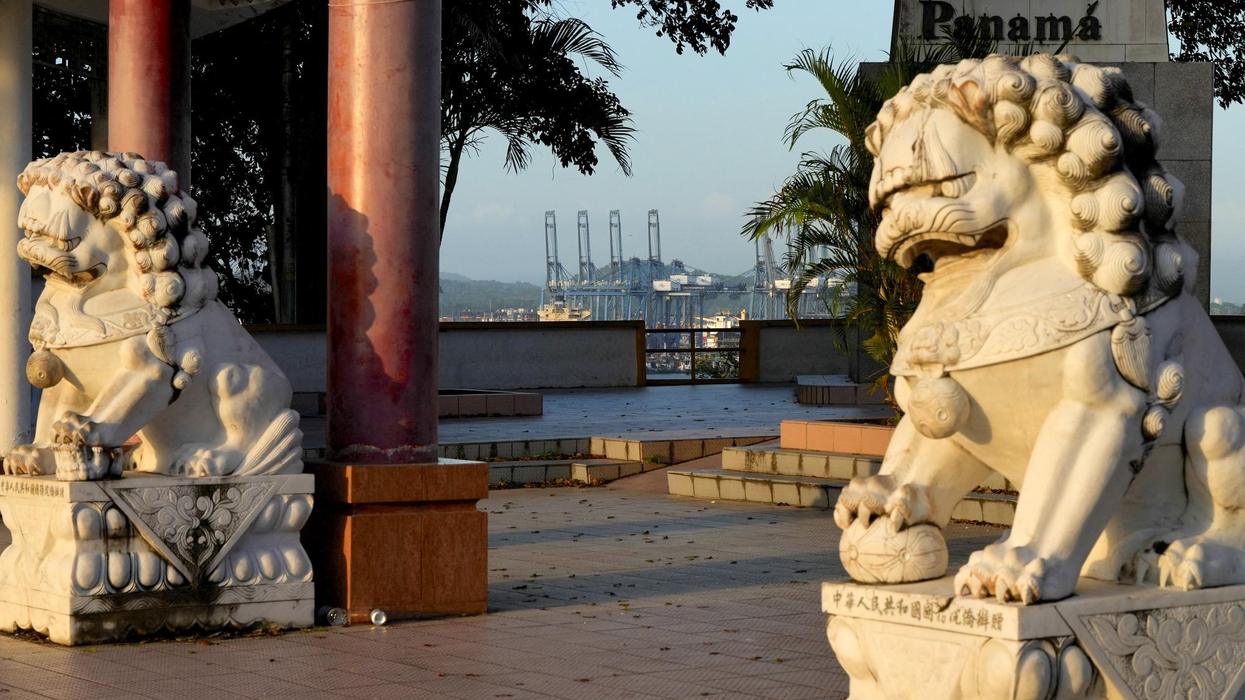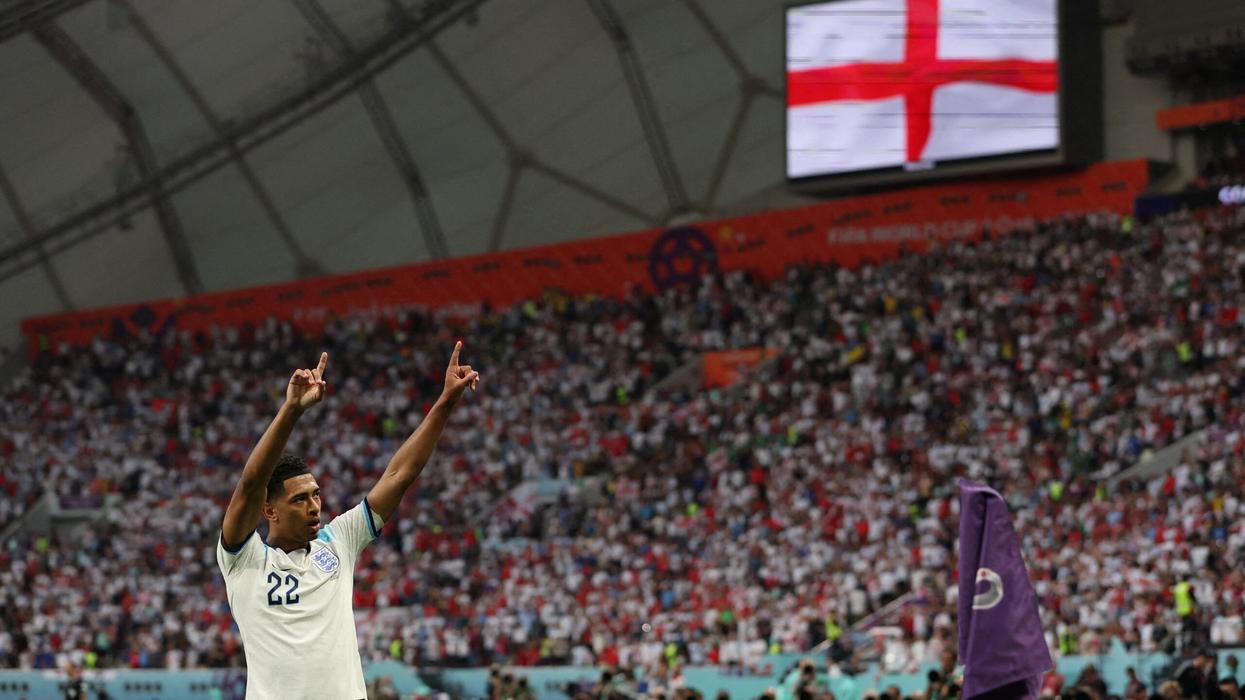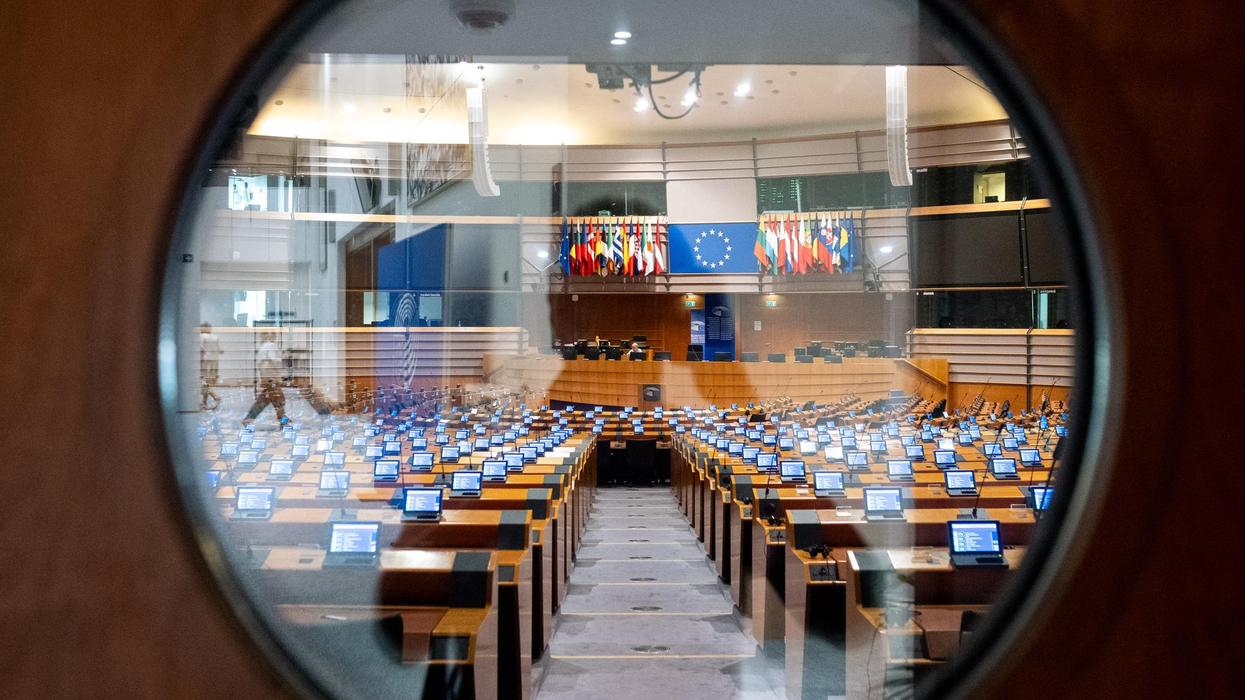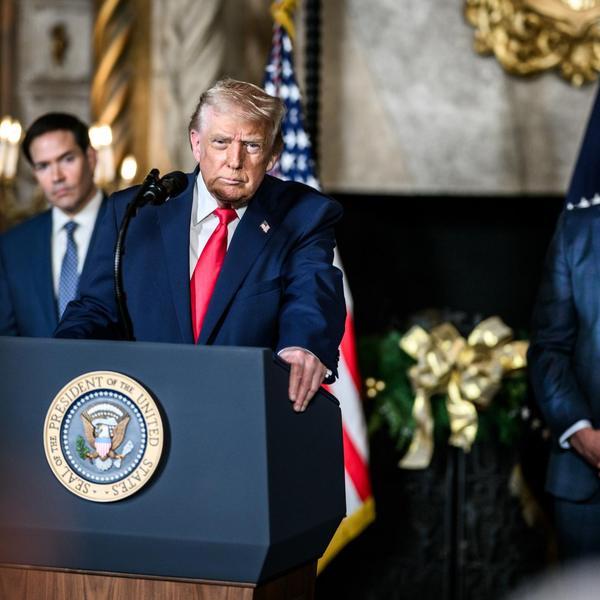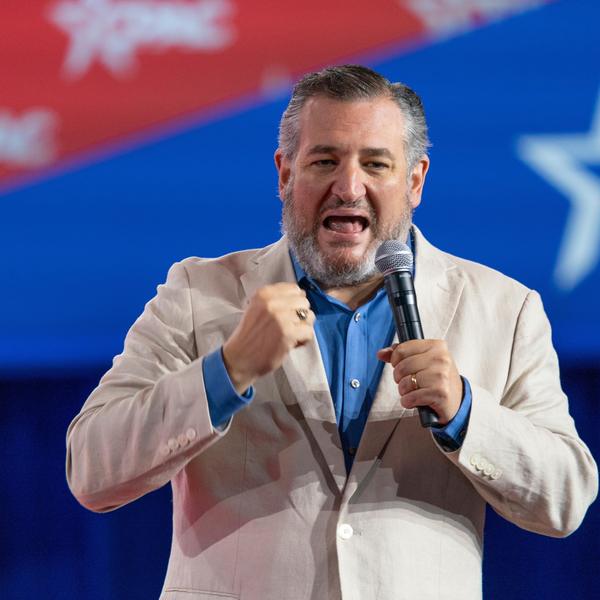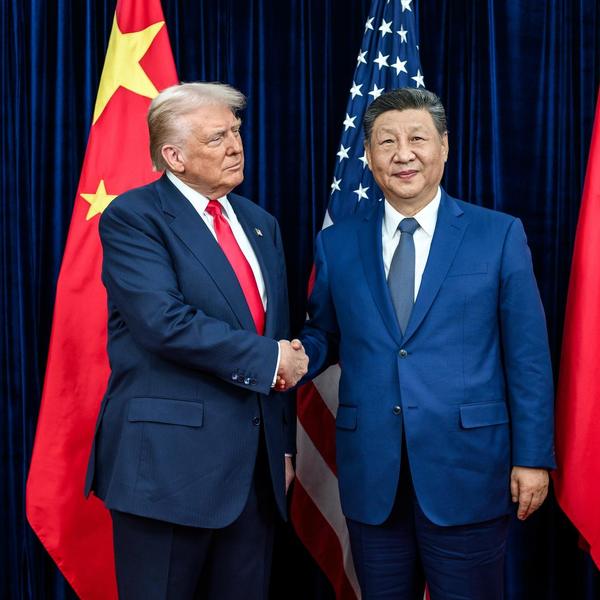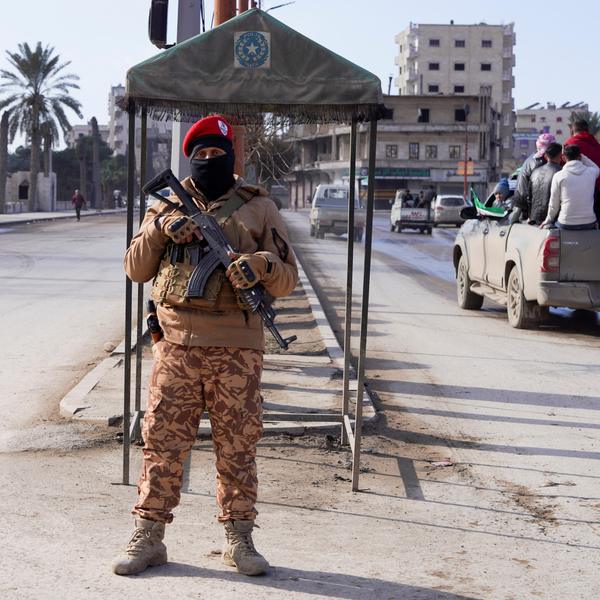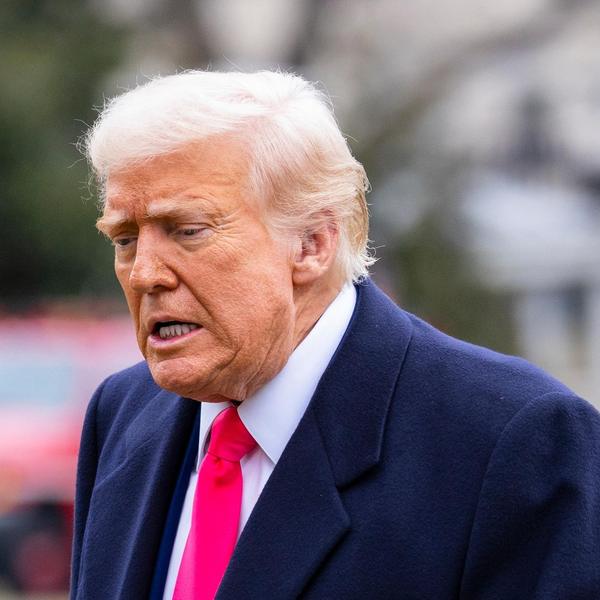It is difficult to say whether Tunisian President Kais Saied’s March 30 announcement that he is dissolving the country’s parliament represents a turning point or just another chapter in a prolonged power struggle. Saied made this move after 121 members of the chamber held an online meeting, the first of its kind since the parliament was suspended on July 25, 2021. Insisting that they were “conspiring against the state’s security,” and “attempting a coup,” Saied took the extraordinary step of ordering the Minister of Justice to begin investigations of more than 30 of them.
A wider and serious implication of this assault on the parliament is that Saied is not merely trying to dismember Tunisia’s democracy; he is trying to reconstitute the very nature of the Tunisian state. This requires restructuring an array of institutions that undergirded the country’s fragile democracy from 2011 until July 25, 2021, when Saied staged his putsch. If he now succeeds in creating a new kind of politicized military beholden to him, and if he can transform the judiciary into a handmaiden of an all-powerful president, the prospects for a return to competitive democracy in Tunisia are likely to be slim.
If Saied now succeeds in creating a new kind of politicized military, and if he can transform the judiciary into a handmaiden of an all-powerful president, the prospects for a return to competitive democracy in Tunisia are likely to be slim.
Still, Saied’s bid to redo the Tunisian state faces challenges. Among other things, it seems to have had the unintended effect of narrowing divisions in a thus far fragmented opposition. Efforts to restructure the military could intensify this boomerang effect, especially if and when the General Union of Tunisian Workers (UGTT) decides to back the opposition rather than sustain an ambiguous stance that has worked to Saied’s favor. But that moment has not yet arrived, and thus the opposition lacks the one organization that could tip the balance it its favor.
The Ukraine crisis has complicated the stakes for all the key players. With food prices climbing in North and Sub-Saharan Africa, the ongoing effort of the Tunisian government to negotiate a revised agreement with the International Monetary Fund (IMF) becomes even more difficult and contentious. Saied’s assault on the Tunisian state has created a political vacuum that is antithetical to any coherent economic reform strategy. The threat of an economic meltdown might open some space for the UGTT to mobilize Tunisians behind a real national dialogue. But for this to happen the UGTT leaders must decide between prioritizing the union’s specific social interests and embracing a more national political agenda. For now, the prospects for the latter scenario are unclear, thus suggesting that the urgent task of creating a more unified national opposition movement endures.
The military and the risks of growing politicization
In comparison to those of the wider Arab world, Tunisia’s military has not before played an institutionalized role in governance. Still, in the decades prior to the 2011 Jasmine Revolution, informal networks between Presidents Habib Bourguiba and Zine El Abidine Ben Ali and an officer corps recruited from the Sahel region blurred the boundary between the executive branch and the army. Moreover, as one expert notes, in the late 2010s military actors became more active in the political arena by, among other things, taking public positions on hot button issues such as the role of Islamists. That six retired generals in May 2021 called upon Saied to initiate a national dialogue indicates that the army’s growing political role does not necessarily abet autocratic forces. But it has created an opening for leaders to use their links to military officers in ways that could ultimately harm democracy.
After he suspended the parliament, the military provided the only formal basis of institutional support for a president who had impugned the legitimacy of the entire political system.
This is precisely the course that Saied took when he seized power on July 25, 2021. After he suspended the parliament, the military provided the only formal basis of institutional support for a president who had impugned the legitimacy of the entire political system. Saied’s reliance on the military is manifest in the appointment of retired general Ali Murabet as Minister of Health, and the inclusion in Saied’s small circle of advisers of Dhayghem Ben Hassine, a security official recruited after his chief of staff, Nadia Akacha, resigned in January. But the army’s growing prominence is exemplified first and foremost by the outsized role played by the military courts. Relying on the 1957 Code of Military Justice, on trials rarely open to the public, and on a secret detention system, the courts on September 21, 2021 imposed short term jail sentences on Nidal Saudi and Saifuddin Makhlouf, two leaders of the Islamist Karama Party.
While the courts have also pursued secularly oriented leaders such as Yassine Ayari, Amina Mansour, and Salim al-Jabali, their disdain for Islamists—which is clearly shared by the president—has encouraged the military to focus on prosecuting prominent Islamist MPs. But the arrest in December 2021 of former Ennahda Justice Minister Noureddine Bhiri complicated this strategy by drawing more international attention to the courts’ abuses. When he then went on a hunger strike, his deteriorating health compelled the interior minister to order his release from house arrest. Bhiri’s March 8 release highlights the risks the military runs by being complicit in Saied’s repressive strategy. A violent escalation of the conflict between the president and a more united opposition could eventually push the officer corps to make a fateful choice between defending the president or reclaiming the popular trust it had won during the Jasmine Revolution.
Saied’s assault on the judiciary
Over the past three months the potential for a more united opposition has grown in tandem with Saied’s escalating assaults on state institutions that have been bastions of the urban secular middle class, some of whose leaders at first tacitly or openly backed the president. The most vivid example of this boomerang effect is in the judiciary—the one arena that has retained some authority and institutional means to counter the military courts’ actions.
The prosecution of Abderrazak Kilani offers a telling example of this dynamic. A former president of the Tunisian Bar Association, his jailing in early March was condemned by the Tunisian Order of Lawyers, which used the occasion to reiterate its opposition to the military courts. This event followed a larger controversy that erupted after Saied ordered the closure on February 6 of the Supreme Judicial Council (SJC). The highest judicial body in the country, the SJC has been a source of concern for Saied for many months. While he promised that “I will not interfere in the judiciary,” his allies launched an online campaign and in the state-owned television station to vilify the members of the SJC, accusing them not only of corruption, but also of complicity in covering up the murders of Chokri Belaid, a secular intellectual who was assassinated in February 2013.
The highest judicial body in the country, the Supreme Judicial Council has been a source of concern for Saied for many months.
Saied’s move provoked condemnation from a wide array of Tunisian NGOs and political leaders, not to mention concerns from Western financial donors, the United States State Department, and the United Nations Human Rights Commission. While Saied condemned this “foreign interference” in Tunisia’s internal affairs, Justice Minister Leila Jaffel seemed to respond to such criticisms when she announced that rather than dissolve the SJC, the government would not only appoint a temporary council but revise the laws regulating the body—and do so in a democratic and participatory manner.
These promises will not reassure Saied’s critics, who in the wake of the attack on the SJC asked whether “henceforth Tunisia is ruled by a totalitarian regime?” While the political elite seems to be increasingly fearful that the answer is “yes,” it is far from clear that the wider population shares this concern. Indeed, in a survey of 1200 respondents, fifteen percent agreed that “President’s actions…threaten the rights of the Tunisian people” while almost eighty percent indicated that their chief concern was corruption. If this gap between elite and mass perceptions persists, the expanding alliance of political leaders and activists that seems to have emerged following Saied’s assault on the judiciary and other institutions, such as the media, may not be enough to galvanize and sustain a mass opposition movement.
Prospects for a wider movement?
There have been at least two recent developments that might widen the scope of national resistance to Saied. The first is the total failure of his online “consultation.” Saied claimed that the initiative would give citizens a chance to express their opinions on political reform in advance of a promised national dialogue that would in turn set the stage for a July 25 referendum on a new constitution. But only some 2.5 percent of eligible voters participated in the exercise. Aptly entitled “Your Opinion, Our Decision,” it hardly reached the rural hinterlands, where there is little internet access, while press reports suggest that many Tunisians saw the entire exercise as a sham, while some in Ennahda Movement called for a boycott. Underscoring its hollowness, on March 20, the day the consultation officially ended (which by design was Independence Day), several thousand protesters assembled in Tunis where they shouted “Bring Down the President” and “No to the Consultation.”
The second development is Saied’s March 30 announcement that he is dissolving the parliament. This announcement, which the president made in a late night speech, seems to have generated concern among some leaders who had previously supported the president. For example, Zouhair Maghzaoui, the leader of The People’s Movement, noted that “We were among the supporters of 25 July, but the disagreement today is about the management of the current stage, and about priorities.” Indeed, he added, “I did not understand why he would give a speech before and after midnight. On the occasion of Independence Day.” Beyond the timing of the speech, whose tone, he insisted, was typical of the president, Saied’s remarks demonstrated a persistent problem, namely the existence of “two heads of the executive.” “Saied’s discourse,” he insisted, “is totally different from the discourse of Prime Minister Najla Bouden”.
Coming from one of Saied’s most steadfast supporters, these remarks could suggest growing tensions in the pro-Saied camp. But Maghzaoui’s claim that the heart of the problem is two competing executives offers an oblique or even evasive summary of the key issue: Saied’s unconstitutional power grab. That his language is completely different from that of the prime minister is hardly surprising but also irrelevant because Najla Bouden is beholden to Saied and not the electorate or the now defunct parliament.
The most important player in this drama is the General Union of Tunisian Workers and its secretary general, Noureddine Tabboubi.
The UGTT’s equivocation contrasted sharply with the response of many party leaders and movements, who took to the streets to reject the legitimacy of the president’s dissolution of the parliament, and to assail his call for an investigation of party leaders, including Islamist Ennahda’s Rachid Ghannouchi. But without the clear support of the one organization that has the capacity for mass mobilization, an increasingly diverse opposition that includes Islamist and secular forces still faces an uphill battle to stymie Saied’s autocratic project, or to deflect the military courts that can now menace the opposition without concerns about a potentially troublesome civilian judiciary.
The Ukraine war complicates matters
It is hardly surprising that the UGTT has rejected the IMF’s painful reforms, which the government appears ready to accept. With rising food prices imposing further hardships on an already suffering population, the union cannot risk alienating its base. Nor can Saied, for that matter. He has telegraphed his opposition to austerity pressures, thus suggesting a convergence of views with the UGTT. The president’s strident populism gives the union, and Tabboubi in particular, an incentive to avoid a head-on collision on the question of political reforms. Thus at least in the short term, Tunisia’s economic crisis works to Saied’s advantage, even if in the longer term his increasingly controversial bid to centralize power will ultimately undercut the government’s ability to address Tunisia’s economic woes.
Where is the United States?
On March 31, US Department of State spokesperson Ned Price noted that the administration is “deeply concerned by the Tunisian president’s decision to unilaterally dissolve the parliament, and by reports that Tunisian authorities are considering legal measures against members of the parliament.” This statement was issued in concert with a proposal to reduce military assistance from $112 to $61 million and to reduce economic aid by 50 percent. Prompted partly by pressure from Congress, the White House has signaled its readiness to condition US aid to Tunisia.
While a welcome shift from the Biden Administration’s previously tepid response, absent a wider national opposition movement, outside pressure is unlikely to compel Saied to retreat. Paradoxically, as he becomes more isolated, Saied retains the ability to survive—even if his effort to restructure the Tunisian state does not, and perhaps cannot, succeed. With a full economic collapse looming, an intervention by the military—in concert with some kind of civilian-based emergency committee—could emerge on Tunisia’s darkening horizons.
This article has been republished with permission from Arab Center DC.


